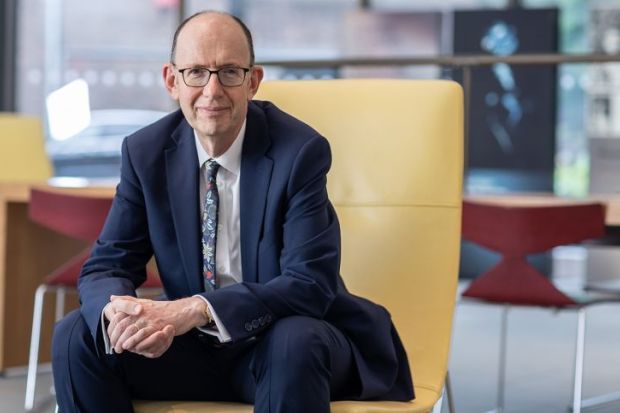The leader of a soon-to-be-merged university has said the union is a strategic decision and not a reflection of financial pressures, while acknowledging that other institutions might opt to seek security together in straitened times.
Health-focused St George’s, University of London will join City, University of London later this year, creating City St George’s, University of London.
The institutions have portrayed the marriage as a bid to become a “health powerhouse” that will also bring “significant advantages in terms of scale, reach, capability, and resilience”.
Some leaders have predicted that the current financial pressures in the English sector – driven by frozen domestic tuition fees and the unpredictability of international student recruitment – might force more institutions into mergers.
Sir Anthony Finkelstein, the current president of City and future leader of City St George’s, acknowledged this possibility but told Times Higher Education that the merger was the right strategic fit for the two institutions.
“I think that higher education in London is due for a bit of a shake-out; yes, I believe an institution that is broader and more scaled is more resilient in the current environment; and yes, I personally believe that a tough environment is the right time to take risks,” Sir Anthony said.
“That’s the time when you need to be bolder strategically, but in broad terms this is the working-through of our strategy and position and ambitions, and not to do with the immediate environment.”
Sir Anthony said there would “probably” be more mergers to come but cautioned leaders against them unless they were confident strategically.
“You don’t have to go very far into a merge process to understand that the costs go up before the benefit,” he said.
“If you feel rocky financially, it may not be the wisest thing or may not be the easiest thing to achieve.”
Instead, Sir Anthony said, public investment and help for universities to restructure and innovate should be a government priority.
“I believe profoundly that we could educate at lower unit cost, but to do so requires innovation [and] requires workforce structure changes which need investment to achieve,” he added.
“If the political parties are unwilling to change the funding system, they must be willing to provide us with investment support to restructure.”
The merger comes about 18 months after City’s acquisition of the prestigious performing arts school Urdang.
Most current St George’s staff will join researchers from City’s School of Health and Psychological Sciences to form a larger school of health, medicine and psychological sciences, in a bid to meet London’s “critical healthcare workforce needs”.
Sir Anthony, a former head of computer science at UCL, said the new institution was not trying to be “another UCL” but rather was seeking to place itself alongside other major players in the capital.
“We want to be something different, and we want to and are addressing a different demographic, highly successfully,” he said.
“I think there’s room for a diversity of models. I think the higher education sector is immensely homogenising.
“It pushes institutions in some senses together, and I think we want to resist that pressure and construct something that provides a really distinct offering – both in terms of the education and research.”
Register to continue
Why register?
- Registration is free and only takes a moment
- Once registered, you can read 3 articles a month
- Sign up for our newsletter
Subscribe
Or subscribe for unlimited access to:
- Unlimited access to news, views, insights & reviews
- Digital editions
- Digital access to THE’s university and college rankings analysis
Already registered or a current subscriber? Login







